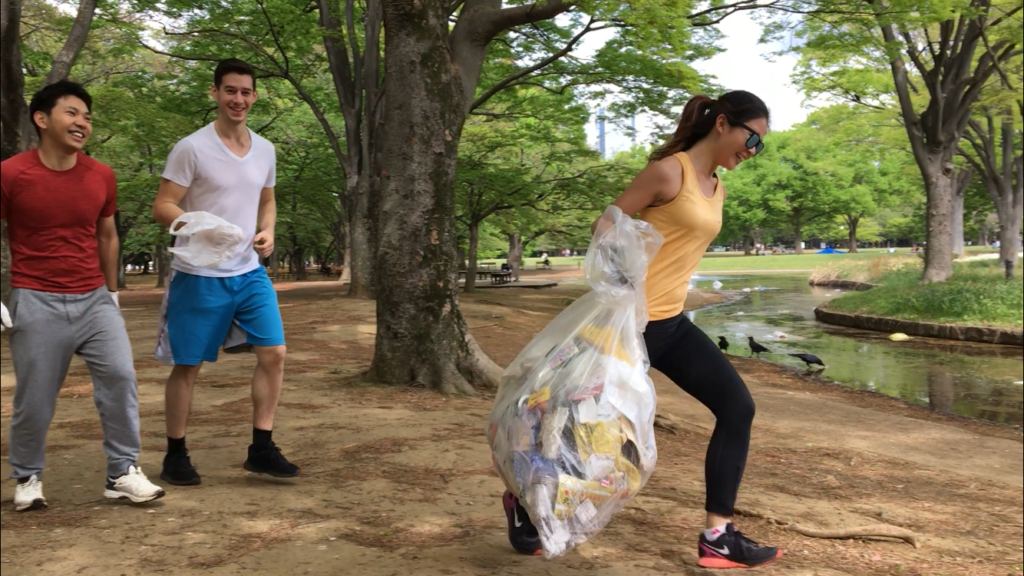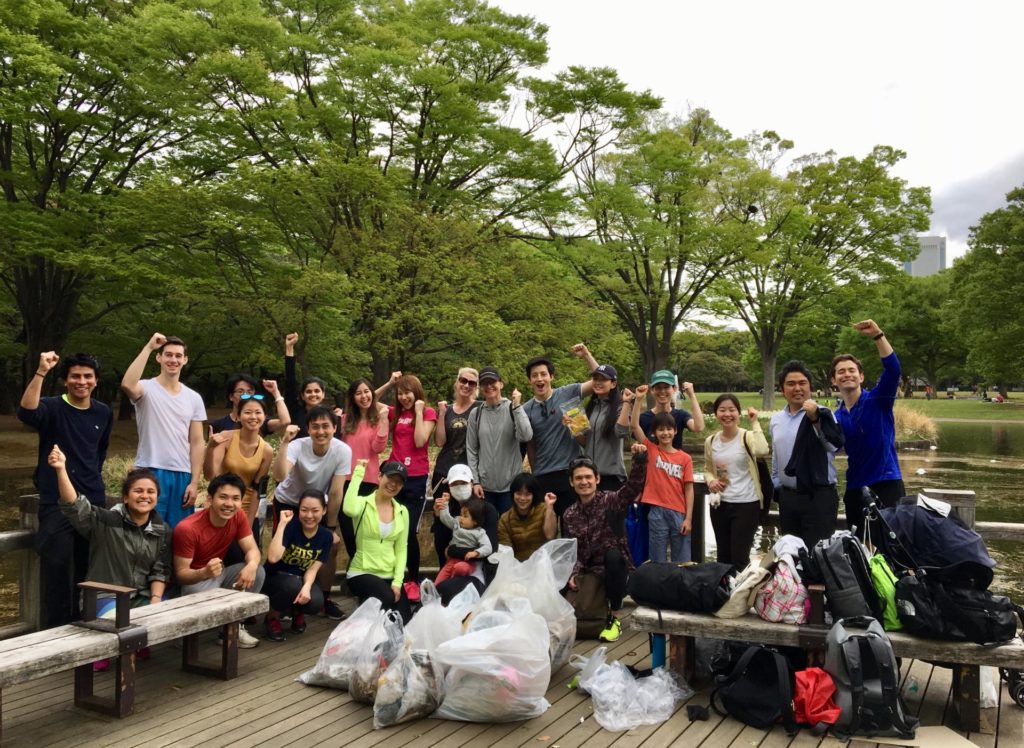Our oceans are drowning in pollution and marine life is literally choking on drifts of plastic; there is increased obesity and heart disease from unhealthy eating habits and severe addiction to the digital world is only feeding the unhealthy cycle.

Enter “plogging.” While it sounds like some new hipster tag for uploading more selfies and humble-brags to the web, it simply means to jog while picking up trash. This Scandinavian eco- friendly fitness craze literally sweeping the globe fuses the two Swedish words plocka (to pick up) and jogga (jog). The idea is to make your typical beach or park clean-up event fun by turning it into a running social event. Depending on the length and intensity of your run, plogging burns 10-20% more than your traditional clean up as it requires lunges and arm and back movements—all while running and carrying a trash bag.
And that’s how I found myself at Yoyogi Park one Saturday morning to take part in Japan’s first-ever “Plogging Revolution” organized by Social Innovation Japan, a network of social revolutionaries finding real-life, real-time solutions to make local communities a better place. Despite the short notice, an eager group of 25-30 people showed up ready to exercise and do good for the community. To cater to different fitness levels, we were split up into three teams: walkers, joggers and hardcore runners. All were equipped with gloves and bags. Once the green light went off, my group of hardcore runners charged away fueled by the incentive that the group who gathers the most trash would win a mysterious prize (it turned out to be trail mix).
Although Tokyo is one of the cleanest cities in the world, Yoyogi Park was surprisingly littered and in just an hour, we collected roughly five kilograms worth of bottles, wipes, onigiri wrappers, cigarette butts and paper plates from the hanami (cherry blossom viewing) parties left behind the weekend before. All three groups returned to our meeting spot like triumphant treasure hunters.
Plogging may seem like an intense version of your average clean up, but it leaves a lasting impression and more importantly, a behavioral change. After talking to other ploggers since the event, not only are we made more aware of the amount of trash that is produced, but we’ve actually started making a concerted effort to avoid creating unnecessary trash like using recyclable bags, shopping from the local farmers’ market and eating home-cooked meals.
Pollution especially in a country like Japan can feel distant since its streets are famous for being clean, but it is there especially when you take into account the heavy amount of single-use plastic used and disposed of daily. Plogging made me realize although you don’t see it immediately, our daily actions and choices do make a difference.

The community aspect of the event also struck me. While plogging draws like-minded people together, the group I met was eclectic— ranging from vertical farming researchers, hikers, entrepreneurs and AI developers. Being out in the sun exercising made networking much more conducive to collaboration as compared to speaking over loud speakers and exchanging business cards on a Thursday night event at a swanky bar. After disposing the trash, many of us stayed behind to chat, strangers becoming friends and discussing potential future projects.
So the next time you’re about to buy that water bottle or use a plastic toothbrush, think twice. Still not convinced? Rather than sleeping in on a weekend morning, gather a few workout buddies together and try plogging for yourself!
Participate in similar events around Tokyo.
Photos by Robin Lewis




